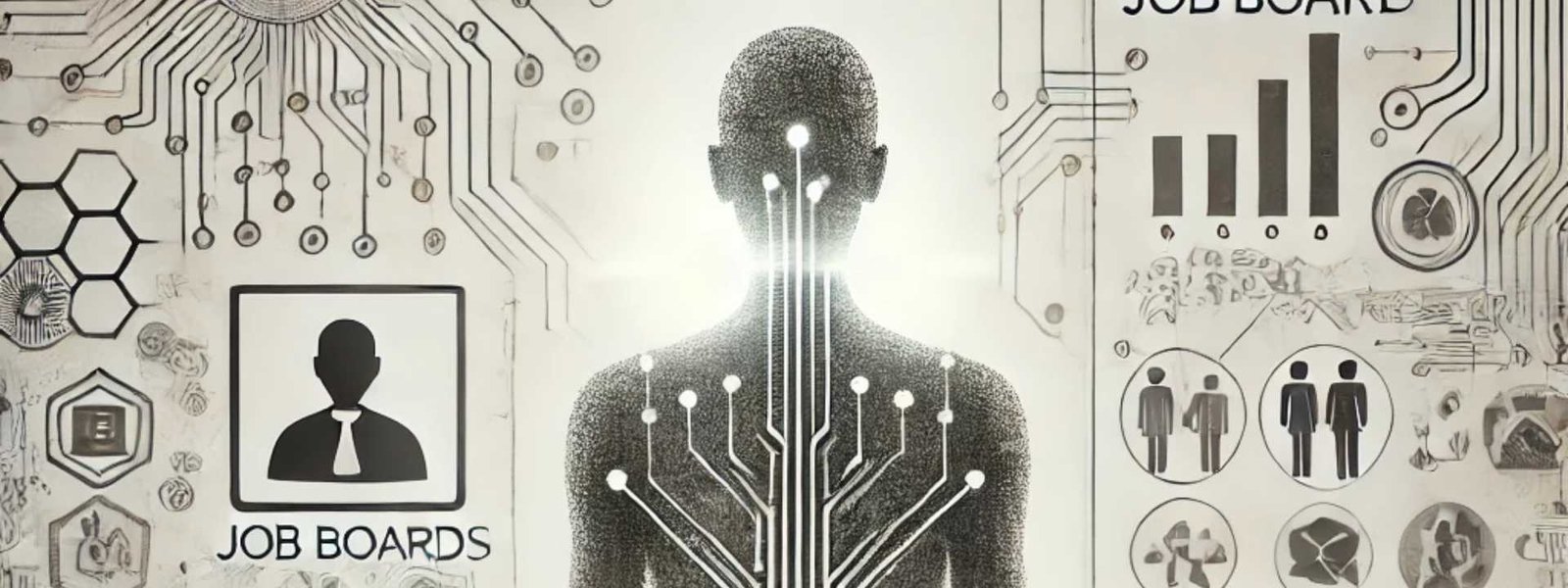The early 2000s marked a pivotal moment in the world of online recruitment. Traditional hiring methods were making the shift from print to digital, and platforms like Monster and CareerBuilder were leading the charge. It became clear that online job boards could revolutionize how employers and job seekers connected.
The Growing Role of AI in Job Boards
Fast forward to today, and the job board industry has matured. LinkedIn and Indeed have become industry leaders, shifting the focus from basic job boards to advanced user experiences, incorporating AI-powered tools for efficiency, and seamless integration with recruitment systems.
In this evolving landscape, job boards —whether established or new—must develop an AI strategy to remain competitive. New players can use AI to disrupt established leaders, while incumbents must evolve to stay relevant. Whether you’re a veteran or newcomer, having a clear AI strategy is crucial to thrive in this fast-moving industry.
AI Strategies for New and Established Job Boards
For new entrants, the AI strategy focuses on identifying market gaps in products, tools, and processes that can enhance the job search or talent-sourcing experience. Incumbents, however, face a different challenge: they must not only introduce new AI-driven products but also improve or even completely reimagine their existing platforms.
Three key areas should be addressed in any AI strategy for job boards:
1. Improving existing products and platforms: Enhance your current offerings with AI to stay competitive.
2. Innovating new tools and products: Use AI to create novel solutions that meet today’s job market needs.
3. Reinventing existing platforms: In transformative times, sometimes it’s necessary to start from scratch.
Key AI Opportunities: Job Matching, Personalization, and Efficiency
Understanding AI’s potential requires a deep dive into current possibilities. Since AI is rapidly evolving, new use cases are constantly emerging. However, certain areas offer significant value today, and these “low-hanging fruits” are ripe for experimentation:
Job Recommendations: Enhancing job matching algorithms to provide better, more relevant job suggestions to users.
Resume Recommendations: Improve candidate matching for recruiters by sending them resumes that meet their criteria.
Personalization: Tailor the user experience for both job seekers and recruiters, whether through job alerts, email marketing, or customer support scripts.
Content Creation: Use AI to help users create resumes, job descriptions, company profiles, and other marketing materials.
Efficiency Optimization: AI can streamline business operations, from customer support to sales and accounting.
These examples are just the beginning. AI’s potential in the job board industry is vast, with opportunities ranging from SEO improvements to automated testing. However, implementing AI solutions requires strong data infrastructure and funding.
The Future of Job Boards: Innovation and Adaptation with AI
Though established platforms like LinkedIn and Indeed are well-positioned to take advantage of AI, history shows that smaller players often bring innovative solutions to the table. Just as Sergey Brin, Larry Page, and Mark Zuckerberg disrupted established tech giants, new entrants in the job board space can emerge as future leaders.
In conclusion, the job board industry is in the midst of an AI revolution, and companies must adapt to stay competitive. By focusing on innovation, efficiency, and personalization, job boards can build sustainable competitive advantages in this rapidly evolving space.

